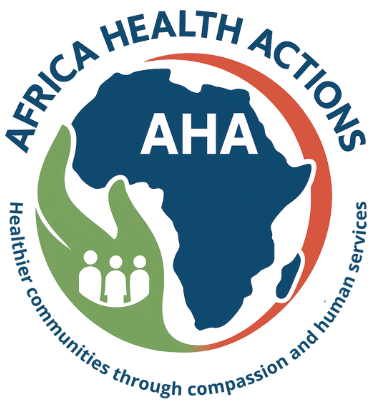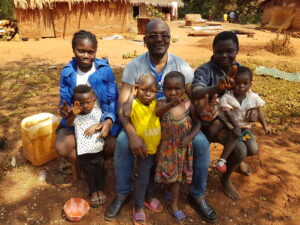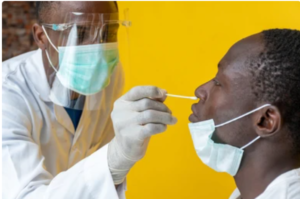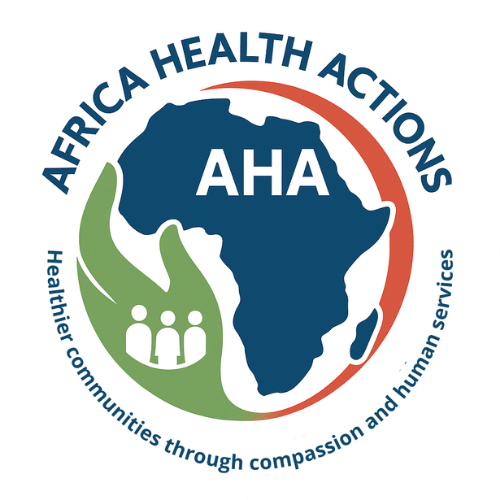Benin, a coastal country in West Africa, has an estimated population of 14.8 million as of 2025. With a GDP per capita of $1,510, the country is considered low-middle income and continues to face major development and health system challenges. Life expectancy stands at approximately 64 years, with women living slightly longer (62.2 years) than men (59.4 years). Despite progress in public health, Benin still reports high mortality rates, 52.9 infant deaths and 29 neonatal deaths per 1,000 live births, reflecting persistent gaps in maternal and newborn care.
Maternal, Newborn & Child Health
Benin’s maternal mortality ratio remains among the highest globally at 523 deaths per 100,000 live births, underscoring the urgent need for systemic improvements in maternal health services. While gains have been made, particularly through expanded skilled birth attendance and innovative financing for emergency obstetric care, rural and underserved areas continue to suffer from critical shortages of trained health workers, essential supplies, and emergency transport. Poor infrastructure, delayed referrals, and inconsistent quality of care further endanger pregnant women and newborns.
Efforts to improve outcomes must go beyond clinical interventions. This includes scaling up community health worker programs, ensuring the equitable deployment of skilled birth attendants, strengthening supply chains for lifesaving medicines, and embedding respectful, rights-based maternity care as a national standard. A more resilient and responsive health system that meets women where they are is central to advancing maternal and child survival in Benin.


Malaria, Tuberculosis, and Neglected Tropical Diseases (NTDs)
Malaria remains one of Benin’s most urgent public health threats. In 2023, the country accounted for 2.1% of global malaria cases and 1.8% of malaria-related deaths, with children under five bearing the highest burden. The disease is also a major contributor to adult morbidity, straining both families and the health system. Tuberculosis adds to the infectious disease burden, with an estimated incidence of 51 cases per 100,000 people in 2023. While lower than in some
neighboring countries, TB remains underdiagnosed and underreported, particularly in rural areas.
Benin is also endemic for all five preventive chemotherapy-neglected tropical diseases (PC-NTDs): lymphatic filariasis, onchocerciasis, schistosomiasis, soil-transmitted helminthiasis, and trachoma. These diseases disproportionately affect the poorest communities, causing chronic illness, disability, and stigma. Despite mass drug administration campaigns and donor-supported efforts, access to NTD prevention and treatment remains uneven, particularly in hard-to-reach regions.
Fragmented health systems, weak monitoring and evaluation capacity, and limited integration of NTD services into primary healthcare further hamper progress. Sustained community engagement, cross-sector coordination, and investment in real-time data systems will be essential to reduce disease transmission, improve early diagnosis, and close persistent equity gaps in access to care.
Disease Surveillance, Emergency Preparedness, & Outbreak Response
Benin continues to experience periodic outbreaks of infectious diseases such as cholera, yellow fever, meningitis, and, more recently, COVID-19, which have placed considerable strain on its health system. The country operates an Integrated Disease Surveillance and Response (IDSR) system aligned with WHO guidelines, which helps detect and report notifiable diseases through a decentralized health network. However, this system still faces significant challenges, including limited diagnostic capacity at peripheral levels, underfunded emergency response units, and shortages in trained epidemiologists and rapid response personnel. Cross-border transmission with neighboring countries also complicates containment efforts. To strengthen national preparedness and response, Benin requires increased investment in laboratory infrastructure, supply chain resilience, community-based surveillance, and real-time data collection and analysis. Collaboration with international partners such as the WHO, the Africa CDC, and UNICEF has provided technical and financial support, but sustainable domestic capacity-building remains essential.


Non-Communicable Diseases (NCDs)
Non-communicable diseases now represent a major and growing public health challenge in Benin, accounting for an estimated 39% of all deaths in the country according to the WHO. Urbanization, changing dietary patterns, physical inactivity, tobacco use, and alcohol consumption have all contributed to the rising incidence of cardiovascular diseases, diabetes, cancers, and chronic respiratory illnesses. The double burden of disease, where both communicable and non-communicable diseases coexist, has further strained Benin’s health system. Primary care facilities often lack the diagnostic tools, trained personnel, and medication stockpiles necessary for early detection and long-term management of NCDs. Additionally, national health policies have historically prioritized infectious disease control, leaving a gap in funding and programmatic focus for chronic disease prevention and health promotion. To reverse this trend, Benin needs a comprehensive national NCD strategy that includes public awareness campaigns, the integration of NCD services into primary healthcare, targeted screening programs in hard-to-reach areas, and partnerships with civil society and the private sector to promote healthier lifestyles.
OUR PROJECTS & PROGRAMMES
Advocacy and Policy Influence:
In Benin, we champion evidence-based policies that prioritize community-led approaches to maternal, newborn, and child health. Through strategic engagement with government bodies, health institutions, and civil society, we advocate for inclusive policies that amplify local voices and drive sustainable improvements in health outcomes across the country.
Capacity Building Benin
We design and deliver tailored training programs to strengthen the skills and knowledge of community outreach workers across four communes in rural…. These programs empower frontline health workers with the tools to deliver essential MNCH services, enhance community trust in health systems, and ensure continuity of care between households and formal health facilities.
Community Outreach Networks
In collaboration with local leaders, we support the formation and coordination of robust community outreach networks. These networks are composed of trusted local health agents who provide culturally responsive health education, promote healthy behaviors, facilitate early disease detection, and connect remote populations to MNCH services and preventive care.
Mobile Health Clinic:
To address geographic and infrastructural barriers to care, we deploy mobile health clinics in the departments of Atakora and Alibori. These mobile units deliver on-the-spot health screenings, primary consultations, vaccinations, and essential medicines to underserved and hard-to-reach communities, reducing delays in care and improving health equity.
Non-Communicable Disease Screening
We conduct targeted screening initiatives for non-communicable diseases, including hypertension, diabetes, and certain cancers. By promoting early detection and timely referral, these programs aim to curb the rising burden of NCDs and integrate preventive care into routine community health services.





